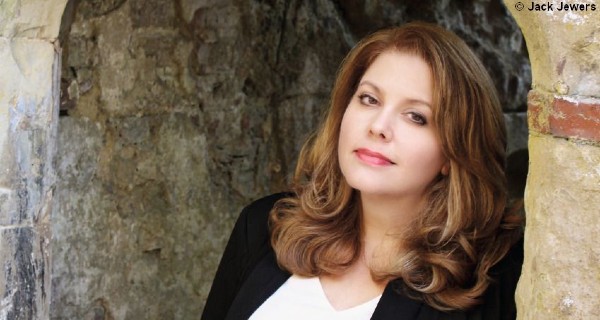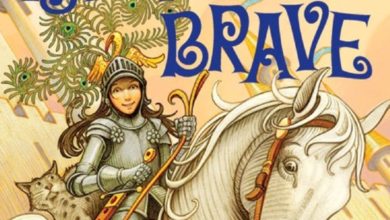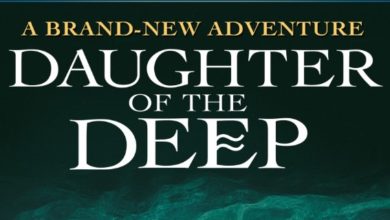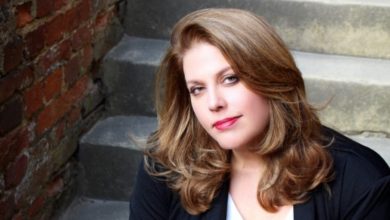
Hello and welcome to the third part of our conversation with YA and fantasy author Christi Daugherty. The conversation was held on December 30, 2020 over Zoom and continued for over an hour. That’s a very long read. For convenience of reading, we have decided to publish the conversation in thee parts. We talked about Daugherty’s career as a YA author, about her best-selling books, and about writing YA in general, and we had so much fun that an hour past in the blink of an eye! Be sure to check out parts one and two.
How did the Corona virus affect your writing and your writing process?
Ugh! It was just so weird. What I’m finding, now that I’ve been writing novels for about 8 years, is: if the world sort of goes crazy, it’s really hard to focus. I would sit in front of my computer, just like it was a normal day, because what I didn’t want to do is sit in front of the television, watching the bad news. But nothing happened. The words were false. I would write 200 awful words, and just delete them and think, “well that was pointless,” and then go back to watching bad television. And I talked to other writer friends, just to find out if I was alone in this – we all have deadlines. But then again, our publishers had just all shut down, so did we have deadlines, anymore? What was going to happen? So, what I found is that nobody was writing in those first few months. Nobody was writing, and it was very comforting, in a weird way, to know we were all in that together. And from then on, I gave myself a pass. What I did instead was edit. I went back to editing a previous book, which I needed to do, because it was going to go out on submission later. This is a new adult crime book I’m working on. I worked on that; I rewrote it. That I could do. Editing uses a different part of your brain. It’s more mathematical, as opposed to magical, which is the writing part, which is like the dreaming part of your brain. Editing is very practical, like: does this word structure work? Is chapter 13 okay? I could focus on that level of it. But in terms of inventing, completely inventing story and setting and character, that requires such concentration, and that just wasn’t there, and it wasn’t there for months. I mean, March, April, May, I didn’t really write anything new. It was late June when I found I could write again and got back to it. Since then, I’ve been writing as much as I can, because I had two-three projects on the go. So, it’s the pressure of being so far behind that really helped push me out of the weirdness of Corona virus and got me back on my writing feet.
Considering that publishing houses and bookstores are closed for the most part, does that somehow influence the industry and the writers themselves?
Oh yeah, it was very strange, because it felt like writing into a void. Am I writing for anything? When is anything going to happen? And what I had to do—what I think all writers must do now—is just put that out of your mind, like you always have to do when you’re writing. Early on, it was impossible because everything was unknown and there was so much happening at once. It was very scary, you know. There was no vaccine, there was no hope for a vaccine, so it felt very permanent. Now there is hope, so now you have to just make certain assumptions: this is what I’m doing. All my books have been delayed indefinitely. I do have dates for some of them, but in some countries I don’t have dates, even, for when they’re going to come out. I’m just accepting this, and that is fine. I’m still writing forward, so if you’re writing a book now, there’s almost no way that’s going to come out for the next two years anyway, in the best of times, because you’ve got submissions to publishers, then editing, and then pre-publication and so forth. You’re expecting two years anyway, So tell yourself, “I’m writing for two to three years from now. The world will be fine then. Book stores will be open. It will be a beautiful future. There will be peace across the land. Tell yourself that until you believe it, and then let yourself write. That’s the only way to do it. That’s what I’m doing. Just assume things are going to get better.
Why did you decide to use a pseudonym, and why did you choose that particular name, CJ, and where did the J come from?
I think you know the J is imaginary. It’s what I always say because it’s not my middle initial. I decided to go with CJ in part because my name is quite long. Across the book, on a paperback, it just takes up a lot of space, so it was just an idea at the time. There was something quite nice about not using my own first name. The mystery of being someone else was quite attractive. I quite like that; I wish I’d written under a pseudonym entirely. I have a friend who did, and I’m so envious, because she has these two lives. Her author life and her private life are completely separate, and that’s kind of fun. There’s something quite pleasing about that to me.
I didn’t really go that far, so it’s kind of pointless, but it is useful because it means when I write adult fiction, because I also write crime novels that are purely adults, then I can use my real name. I use Christy for those and CJ for my YA, most of the time, and that delineates in a way, for me and for readers, which book you’re reading. It’s practical, and in a way there is almost no real reason to do it, except for the length of my name, and the fact that it was kind of trendy, and I quite like CJ as a thing you can actually call me. It’s not like CD. Who is going to call “hey CD, come over here,” but CJ sounds really cool. So yeah, it was just dipping my toe in the direction of having pseudonym, without going all the way in. I don’t know why I didn’t do it.
Do you have any updates about the TV series that’s planned?
Yes, I’m sorry, the pandemic has ruined so many things, but one thing was like literally on the day they closed down Los Angeles. There was a meeting scheduled with one of the biggest streaming companies in the world about this, and then everybody went home. This is my luck. Welcome to my luck. So, it is still optioned. The producer is still promoting it and taking it around. I’m still very optimistic, but everything is so slow in Hollywood now, the same way it’s low in publishing. Everything has been pushed back that was already scheduled. They are buying new books, and they are making new series, but just much more slowly than they would have if the world had not gone mad. I’m still hopeful. Every day is a possibility. But right now, everything is just pushed back, so let’s think next year… next year, bright future.
Which contemporary writers do you recommend reading and rereading as a learning experience?
That’s a such good question. I reread a book called The Secret History, by Donna tart, which is one of the books that made me want to write crime in the first place. It’s also set in a private University, but it’s very much like a boarding school. It is a very big influence on me. When I was writing “Night School” that atmosphere she creates, of that sort of cutoff dark place, is magical. That book is such a pleasing, tightly written crime novel, and I would say that as much as I love Donna tart, nothing else she’s ever written has been increasingly tightly written, so that was a one off, but I love it. I read it a lot.
There is an Irish writer, named Tana French, who I read all of her books. They are not tightly written, but they are beautifully written, and her character development is just so pleasing. A book called The Likeness is one that I have read four times in the last few years, just to remind myself its setting, its character, and it’s this idea of crime that is often forgotten in the story. It is just so pleasing. I highly recommend that.
In terms of non-crime, The Night Circus is a fantasy book, but I was blown away by it. It’s not my style of writing, but I really like reading outside of my own style, just to see what someone else is doing and how they’re doing it. It’s just such a pleasing invention of place and character, and it just makes me really happy. So those are three books I highly recommend reading more than once. And in terms of young-adult, I’ve read Cassandra Clare’s “The Mortal Instruments” series several times, for her fluid writing style, and her action and her love story combination. It is just so light and airy, in that series. It makes me happy, and I’m always hoping to absorb some of that. So that skill she has in that particular series. And there’s a Holly Black book called The Coldest Girl in Cold Town, which offers a really brilliant look at vampires, from a completely different perspective, that is just so marvelous, and it looks at our own society. It’s just fascinating, that book, and I’ve read that one several times, as well, just to understand how she did it, and how did she create that dark world. It’s very pleasing. So those are some that I really read quite frequently.
I hear that Cassandra Clare and holy black write together. Would you have liked to join?
[laughs] If they would have me. I would be honored. That’s a group of very talented writers. I admire all of them, so I would be thrilled, even though I don’t usually do writing groups, because I always find no writing gets done in them, just lots of talking. I’ve been on a couple of writing retreats, and I just hide myself in a room, and I really write. I once wrote 10,000 words or 20,000 words in a week at a writing retreat, but I didn’t meet anybody. There were like 15 or 20 people there, and I was just in this room, writing the whole time, and then at dinner I didn’t know who anybody was, because all day long I would just write, so I’m really bad at writing retreats because all I do is write.For those in the audience who want to write YA, too, what would be your tips?
Number one, is just read lots of YA. Find the books you like, and the ones you don’t like, and figure out why that is. Why don’t you like the ones you don’t like, and why do you like the ones you do, and what can you learn from the ones you like. That’s just basic rules to writing in any genre. My personal rules beyond that are: don’t ever write down to young people, don’t assume they’re young. Most of your readers will probably be adults, if you’re lucky. So lift them up. Remember that teenagers are reading Shakespeare in school, they’re reading Chaucer, they’re reading the greatest writers of our history. They can handle complicated thoughts. Let them, challenge them a bit. I don’t write much differently for young adults than I do for adults, aside from those basic rules that we discussed, which I always try to remember. But, generally, don’t talk down to them. Trust them to come with you to a complicated place.
At the same time, make your teenagers real. Teenagers are not adults. They are different and they are more accepting of things that we wouldn’t accept. They will take chances we would not take, they will do irrational and dangerous things. They’ll just do them because they think they’re going to live forever. Always remember that they think they’re immortal. Don’t put your own knowledge of mortality on to them. This is the magic of teenagers. We should have more of that in our lives. It’s one of the reasons it’s a joy to write about them. They take risks that we have learned are not a good idea. So, let them take those risks, and go with them down that path. Don’t try to make them adults, don’t make them prudes. Make them real, make them irreverent and dangerous and sharp and smart and canny, and more sophisticated than any adult thinks they are, because they are. And once you do that, you’ll find many vistas open in terms of writing. There are so many things you can write about, and take some chances. There’s not enough chance taking in young adult fiction right now. I want to see more risks being taken in terms of what’s written. Let’s open it up again, and make it a little more of a wild genre. I would love to see more of that. So yeah, go, dive in. Just don’t worry too much about it. Write about them. Remember what it was like to be a teenager. Remember the stupid crazy things you did. Think about that and then sit down and write that book.
What examples could you give us of some crazy things that you would like to see and you don’t?
I’m reading a book right now, that’s not published, that some friend of mine has asked me to read. It is set in an apocalyptic Texas. It’s sort of a fantasy of a future which has seceded and has fallen completely to pieces, and is overrun by gangs of motorcycle bandits, and it’s completely believable. It’s extremely dark and unpredictable, and the characters are in real danger, and the adults can’t be trusted. So that kind of world that is realistically dangerous, but also exciting, in which two teenagers are trying to escape. While I was reading it, I was thinking, “I haven’t read anything like this in ages, and this should absolutely be published.” We need more of this risk taking, more of this realistic envisioning of a world. Most apocalypse books, when I read them, I just find myself thinking, “yeah but why”? You know, like “in a world where love is forbidden…” But why would anybody do that? Or “in a world where oxygen has been banned except from the wealthy…” Well, how would that work? I wanted to make it realistic. The real world, as we have learned this year, is more dangerous and more scary than pretty much any apocalypse book I’ve ever read. So, be brave enough to portray that realism a bit in books, and then bring in a bit of fantasy, that somehow, we all survived. Because look, we’re all surviving. We’re coming through this, somehow, as societies. I know it’s early, but we are survivors.
Do you see COVID-19 somehow trickling into the literature in the near future?
I, myself, have avoided writing about this particular pandemic in my books, on the assumption that we are going to come out the other side of it by the time it comes out. But that’s not to say you can’t write about a pandemic. They’re fascinating things. But it’s a tricky one because, are we going to want to read about this having lived it? Haven’t we had enough of doctors, and vaccines, and scientists on television and so forth? But there are ways to look at it that are new and innovative. There are ways to turn it around, those weird press conferences, for example, we get them here on Saturday nights. and it’s so odd. I’ve compared it to “The Hunger Games,” where they come out and tell you these terrible news about how things aren’t working, and then they might as well fire a cannon into the Sky, with the pictures of people who haven’t survived this day. That’s very scary. Let’s all remember these feelings, and then build on them.
How do you handle missing characters you’ve written?
Yeah, that’s a tough one. When I finished writing “Night School,” when I read the end of End Game, I cried for about 20 minutes, because it felt like saying goodbye to a world I inhabited for such a long time. In fact, that’s the only series that’s happened with, because I’ve not written such a long series. Normally, like with the end of “The Secret Fire,” it felt like the end. It felt good. It felt pleasing to leave them there, where they were, for some reason. We were happy with where they ended up, even though it has an open ending. Maybe that was what was satisfying about it, because you could see them walking out into their future, and it was somehow pleasing. “The Echo Killing,” I’m not done with yet, so I still have those characters to come back to. But “Night School” felt like goodbye, and that was rough, actually. I don’t think I was ready to let go, and I will say that when I wrote Number 10, which is set in the “Night School” world, six years later, because it’s in that world, and so you see some of the same characters again, it’s just like seeing old friends. It was like that feeling you get when you’re walking down the street in a city, and you see somebody you haven’t seen in a while unexpectedly, and it’s so pleasing. Your whole heart jumps, like “there you are! my God! I haven’t seen you in so long!” I felt just like that. It was the same emotion of lifting my spirits like woohoo! “Hello character I invented in 2010, and I haven’t seen in five years.” And, you know, ” how marvelous. How are you? Oh, good, you’re alive. Thank God you haven’t died on the five years since I wrote this (because not everybody’s gonna be there). So that was grand, and it did tell me that, at least with Night School, maybe that’s something I’m going to just come back to, over and over again, because the whole time, when I did start writing again in the pandemic, the fact that book two in the “Number 10” series takes place at Cimmeria Academy has been my escape chute for the last few months. I get to go back to my school, and my world there, and just hide out there for a while, cutoff from everybody, surrounded by a very tall fence which suddenly seems like a very good thing.
In an age of trilogies, where everything must be divided in three, how did it come about that “The Secret Fire” was only two books?
Early on, we thought we would just do one, but when we actually started writing the series, there was too much story for one book, so basically think of “The Secret Fire” as one really long book, because that is kind of how we wrote it. It got to be terribly long, and we realized we had to do two to tell the whole story. So, in a way that was—as so many things are in my writing a career—a complete mistake but quite a pleasing one, because we just we weren’t ready to let go of the story yet. So yeah, that was that kind of accident.
So you’re saying, don’t be sorry that you didn’t get three, be happy that you got two.
Exactly. It was meant to be just a one-off book, so there you go.
Christi, thank you so much for joining us today. It was a real pleasure, and thank you to our audience at home.
End of Part 3




